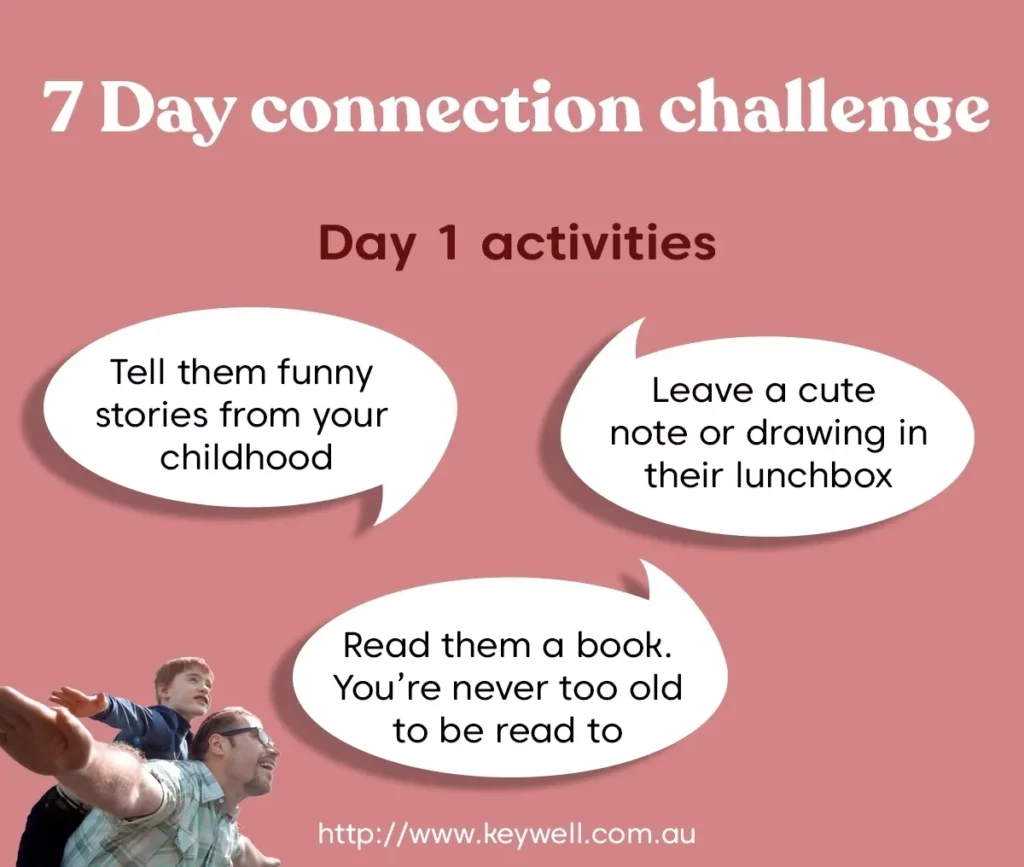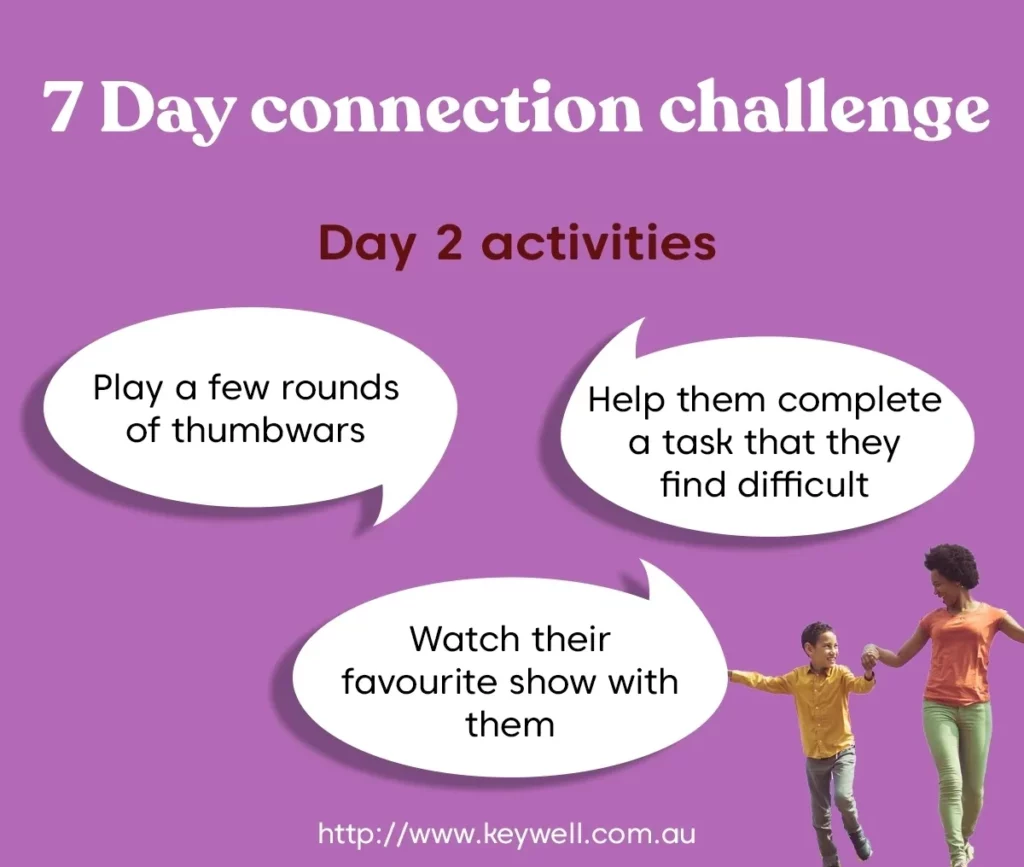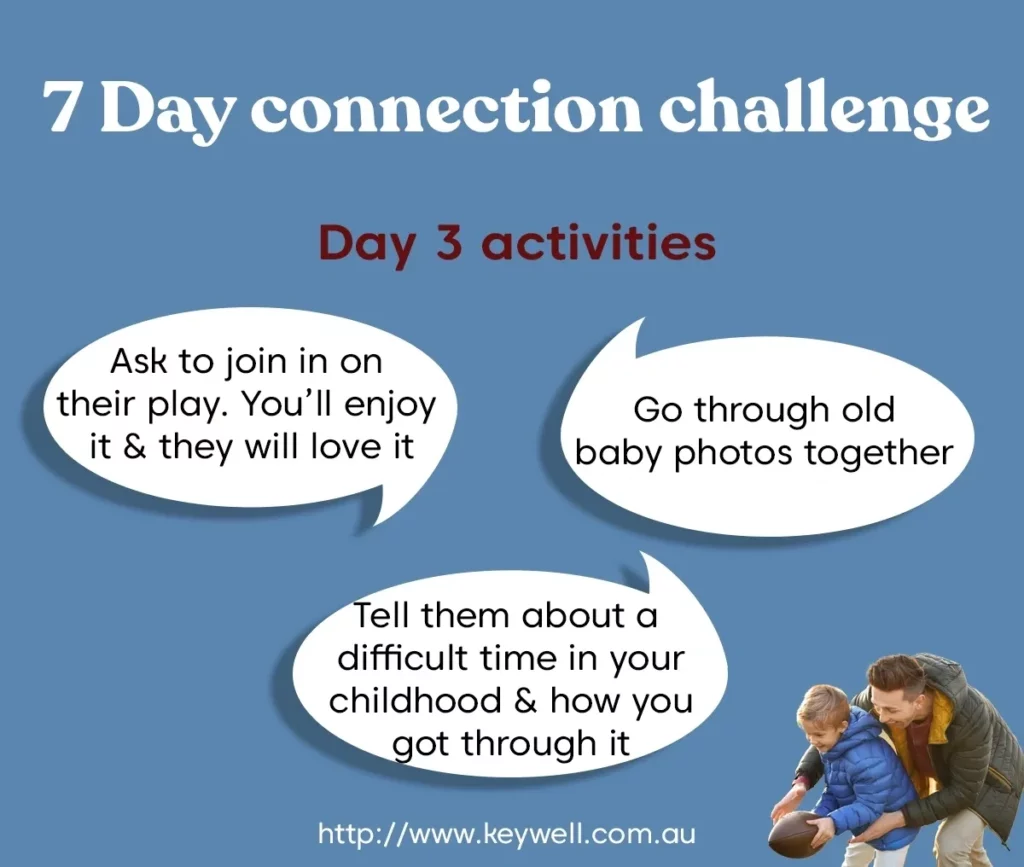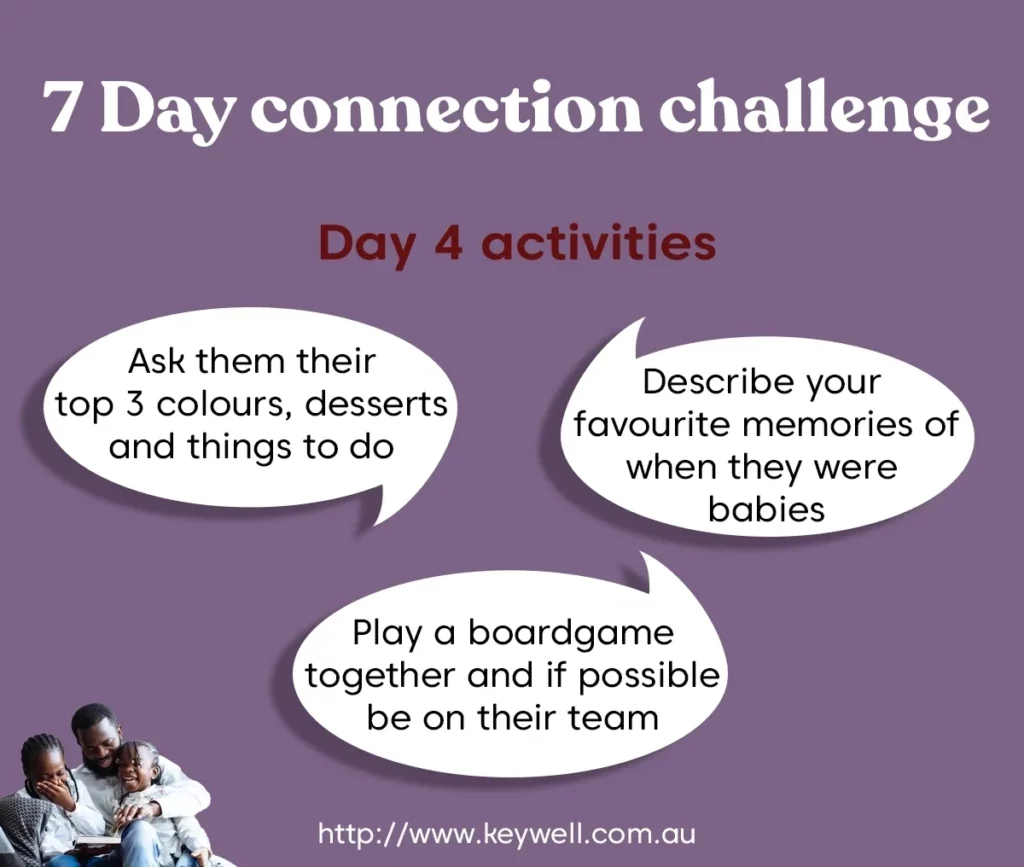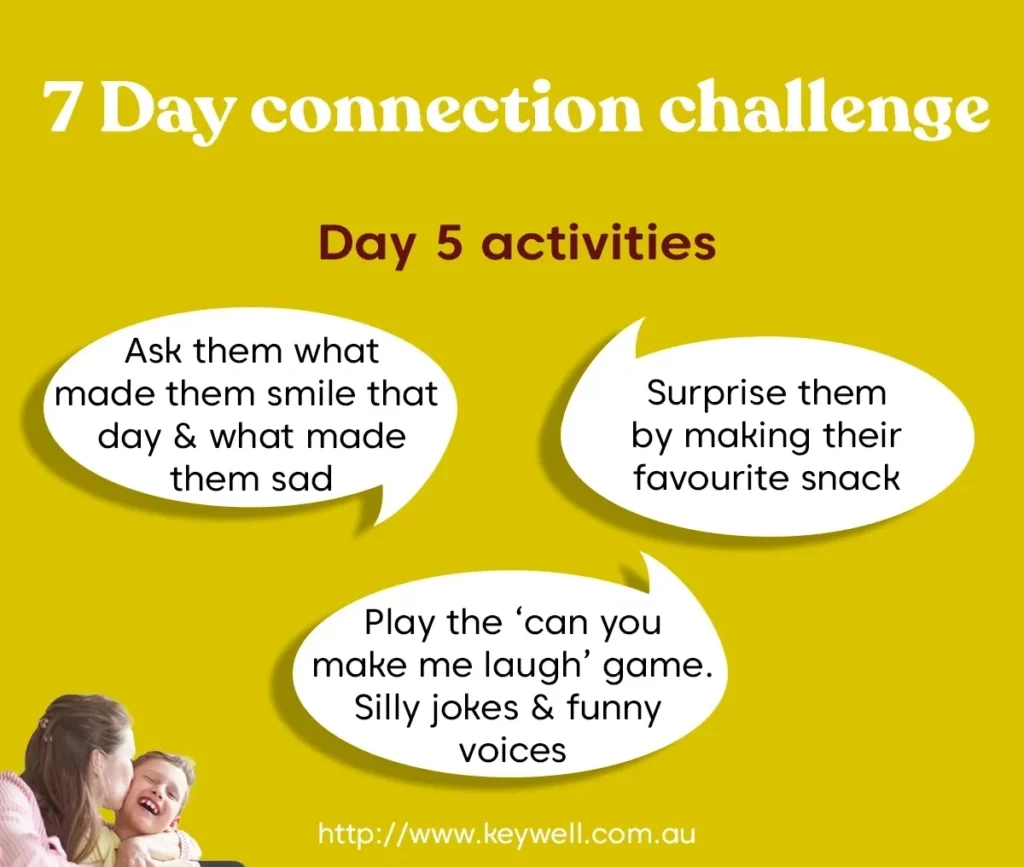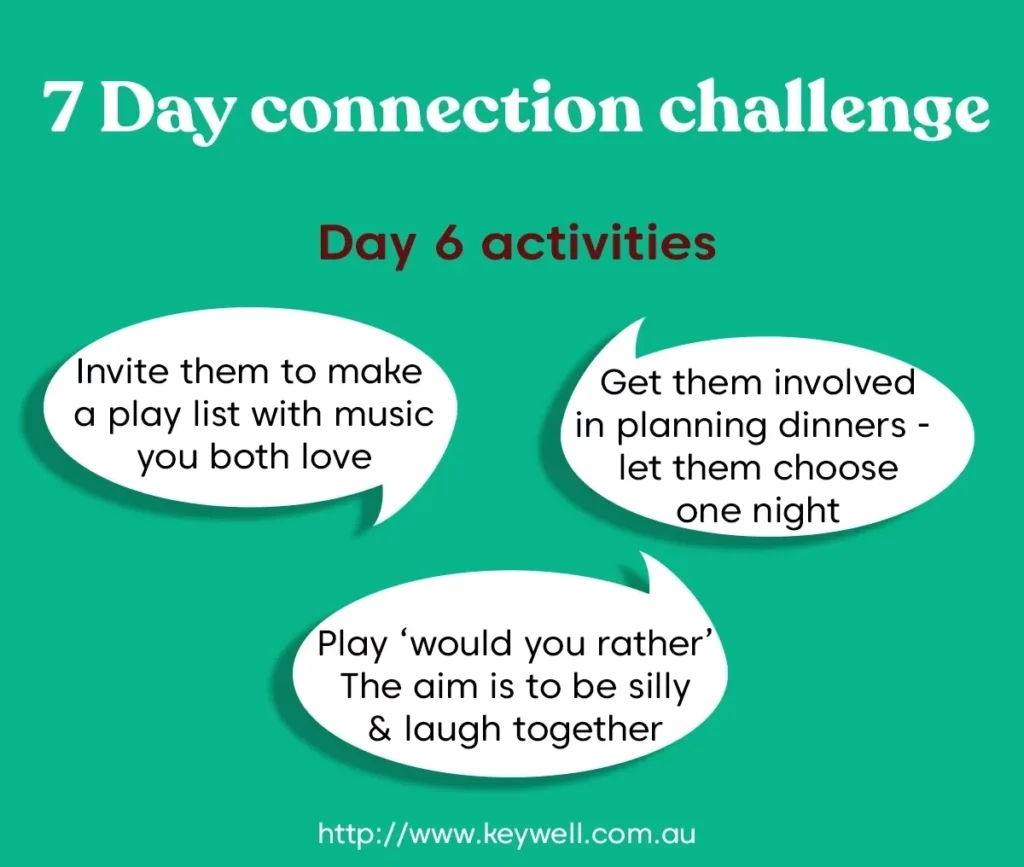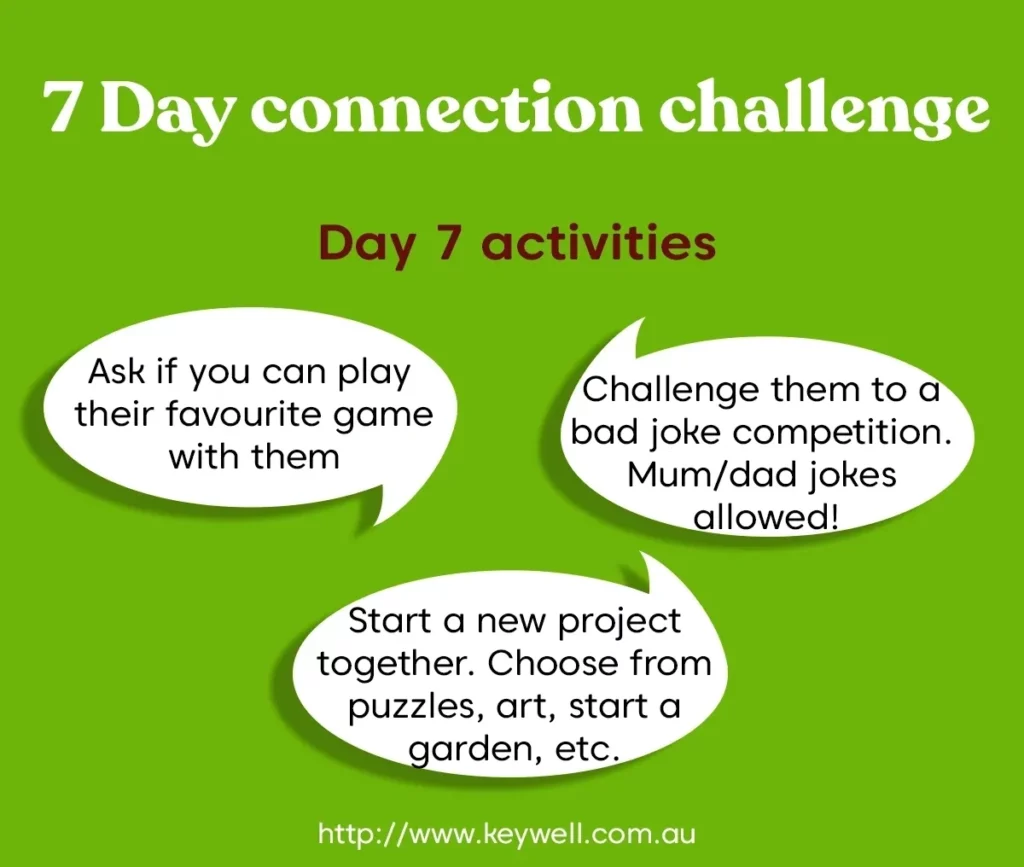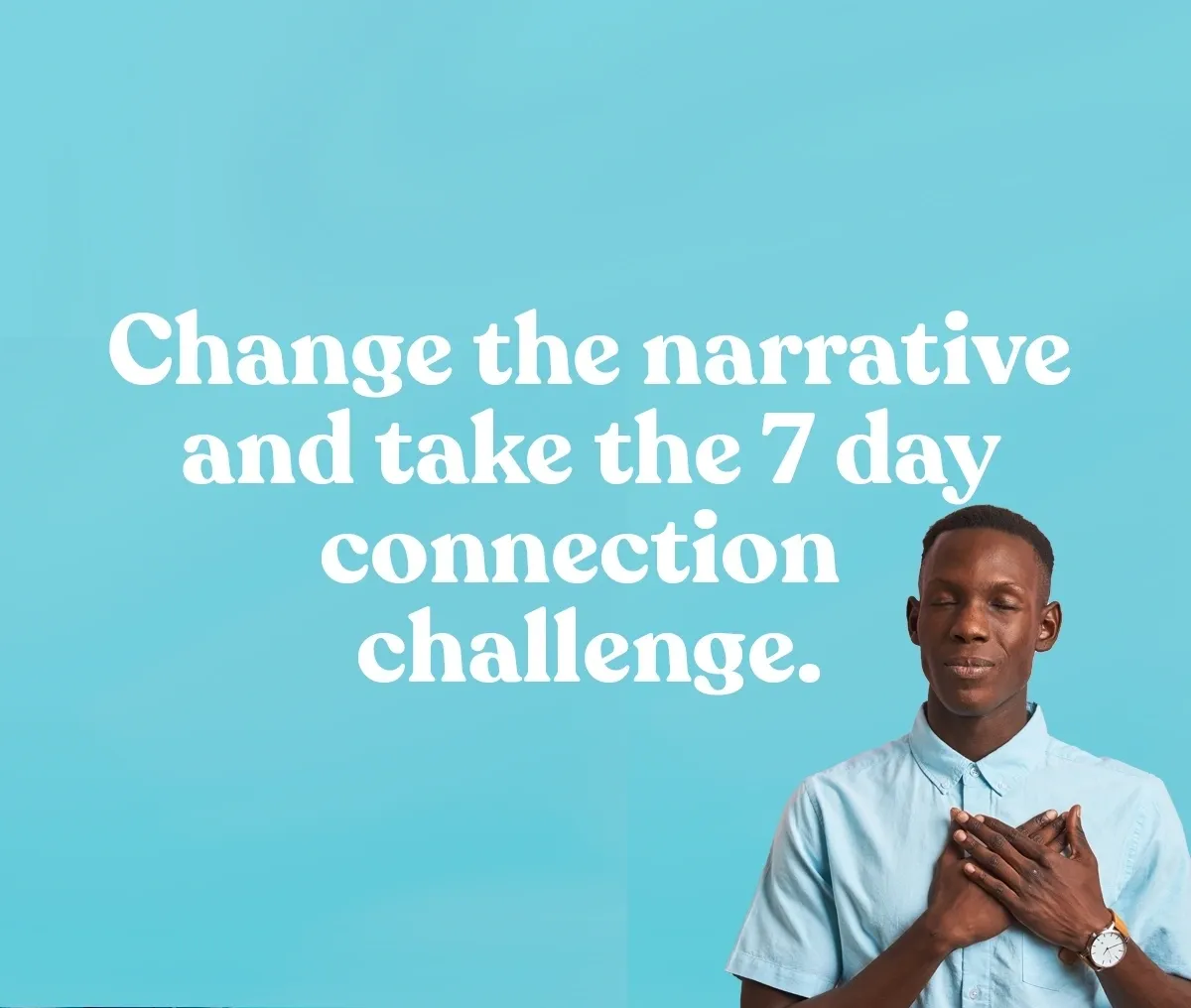Need to know: Prioritise your relationship with your child
You’ve probably heard of oxytocin in relation to bonding with your baby – this happy hormone is often associated with skin-to-skin contact. Oxytocin plays a part in all of our relationships, not just in mother and infant attachment. This hormone has the power to regulate our emotional responses and pro-social behaviours, including trust, empathy, positive memories, processing of bonding cues, and positive communication.
This particular hormone can help parents and children build relationships that are in need of repair or strengthening. Studies show that oxytocin appears to amplify brain activity related to whatever someone is already experiencing. As a parent, it’s important to create the right circumstances to ensure your child’s oxytocin volume is being turned up in positive moments.
Why it’s important
Over time the constant arguing, yelling, and general defiance will wear away at your relationship with your child. Parents who struggle with ongoing challenging behaviour without help find themselves saying that they “love their child but sometimes don’t like them”.
The 7-day connection challenge is a way to reset how you and your child interact. Although difficult, it asks you to let go of most expectations and prioritise your relationship. Removing demands will take away a main source of conflict and relieve the pressure on your child.
Focus on laughter, listening and telling stories, and valuing your child’s thoughts and feelings. At the end of the 7 days, you can pick one problem you want to solve and invite them to find a solution. Your child is more likely to want to solve the issue if they are part of defining the solution.
There are only 3 rules to this challenge:
- Rule 1: Before you engage with negative behaviour, take 30 seconds and remind yourself that your child is having a hard time, not giving you a hard time
- Rule 2: Show affection 8 times a day. A hug, a kiss, a gentle pat on the head, words of love or a warm smile
- Rule 3: Attempt 3 connection activities every day
Tips & strategies
So here is the challenge – The next 7 days are all about prioritising your relationship with your child by focusing on connection.
Day 1 connection activities
- Tell them funny stories from your childhood
- Leave a cute note or drawing in their lunchbox
- Read them a book. You’re never too old to be read to
Day 2 connection activities
- Play a few rounds of thumb wars
- Help them complete a task that they find difficult
- Watch their favourite show with them
Day 3 connection activities
- Ask to join in on their play. You’ll enjoy it and they will love it
- Go through old baby photos together
- Tell them about a difficult time in your childhood and how you got through it
Day 4 connection activities
- Ask them about their top 3 colours, desserts, and things to do
- Describe your favourite memories of them when they were babies
- Play a boardgame together and if possible be on their team
Day 5 connection activities
- Ask them what made them smile that day and what made them sad
- Surprise them by making their favourite snack
- Play the ‘can you make me laugh’ game. Silly jokes and funny voices.
Day 6 connection activities
- Invite them to make a playlist with music you both love
- Get them involved in planning dinners – let them choose one night
- Play ‘Would you rather’. The aim is to be silly and laugh together
Day 7 connection activities
- Ask if you can play their favourite game with them
- Challenge them to a bad joke competition. Mum/dad jokes allowed!
- Start a new project together. Choose from puzzles, art, start a garden, etc
At the end of the 7 days don’t stop the connection activities. Choose new ones that work for your family.
Make sure you find the time to laugh with your child! Did you know that laughter:
- Stimulates the creation of endorphins
- Can alter dopamine and serotonin activity
- Decreases stress hormones
- Increases immune cells and infection-fighting antibodies
Laughing together is a perfect way to keep you and your child connected.
Sprinkle affectionate comments during your time together to help your young person feel safe and loved no matter what.
- “We make a good team”
- “I love spending time with you”
- “I missed you today”
- “Your smile makes me happy”
- “I thought of you today”
- “I love your imagination”
Keep tracking your child’s behaviour using the Keywell app and watch for the change!
